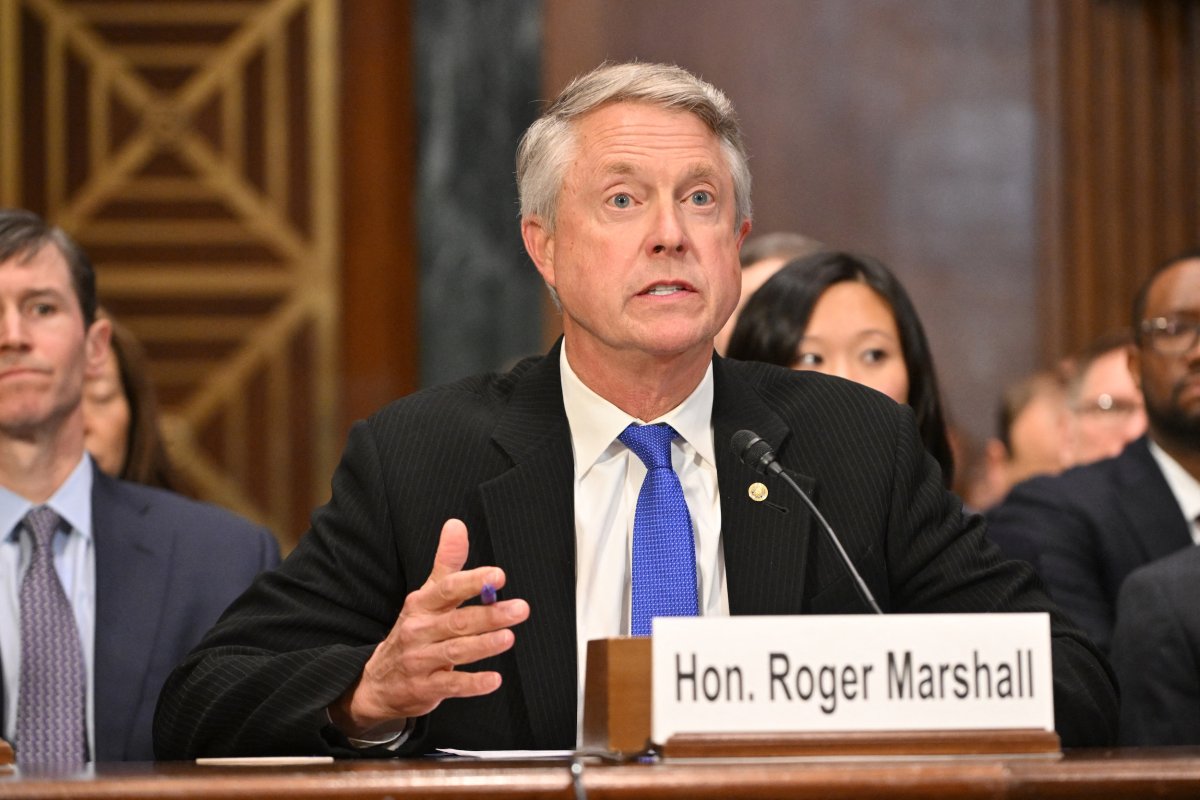Senator: Medicaid Is Broken. Republicans Are Trying To Save It | Opinion
As an OB-GYN in rural Kansas, I delivered a baby almost every day for over 25 years. About half of these deliveries were on Medicaid, and another 10 to 20 percent were done without reimbursement. Every doctor in our community, and our hospital, took all comers; no one was turned away based on their ability to pay. We thought it was our duty, our obligation to society. It's why we wanted to become doctors: to serve our fellow human beings. All this despite no increase in reimbursement from Medicaid in my 25 years of practicing medicine.
I've said it many times: Medicaid is the most broken program in the country. Having Medicaid does not mean you have access to health care. Only 74 percent of physicians accept Medicaid, and many of those who say they do never see patients on Medicaid. Others string out appointments and limit the number they will see. Many specialists use the "busy schedule excuse" and give Medicaid patients appointments months and months out; for all practical purposes, they exclude them from their practice.
Over the past five years, Medicaid spending has increased by hundreds of billions of dollars while American health outcomes have declined. Our plan will strengthen and save Medicaid for those who need it the most. By keeping the program fiscally solvent, Republicans are protecting seniors in nursing homes and all those with disabilities. We are ensuring funding will remain available for pregnant moms and prioritizing funding for children. In fact, almost half of all the children in the country—37 million—are now on Medicaid's CHIP program. We must prioritize every dollar we have for those who need it the most.
 US Senator Roger Marshall, a Republican from Kansas, testifies during the Senate Judiciary Committee hearing entitled "Breaking the Visa-Mastercard Duopoly: Bringing Competition and Lower Fees to the Credit Card System" on Capitol Hill in Washington,...
US Senator Roger Marshall, a Republican from Kansas, testifies during the Senate Judiciary Committee hearing entitled "Breaking the Visa-Mastercard Duopoly: Bringing Competition and Lower Fees to the Credit Card System" on Capitol Hill in Washington, DC, on November 19, 2024.
More
ROBERTO SCHMIDT / AFP/Getty Images
US Senator Roger Marshall, a Republican from Kansas, testifies during the Senate Judiciary Committee hearing entitled "Breaking the Visa-Mastercard Duopoly: Bringing Competition and Lower Fees to the Credit Card System" on Capitol Hill in Washington,...
US Senator Roger Marshall, a Republican from Kansas, testifies during the Senate Judiciary Committee hearing entitled "Breaking the Visa-Mastercard Duopoly: Bringing Competition and Lower Fees to the Credit Card System" on Capitol Hill in Washington, DC, on November 19, 2024.
More
ROBERTO SCHMIDT / AFP/Getty Images
Over 60 percent of Americans support work requirements for Medicaid; a job is the best safety net out there, not to mention a great treatment for mental health and addiction issues.
I believe there are better solutions out there than throwing more money at a program that doesn't work well. More block grants to federally funded Community Health Centers, which are developing a broad-based, more holistic approach to health care—which I believe will become a big part of the "Make America Healthy Again" movement.
Another is block grants to rural hospitals, which are struggling. The best thing we can do for rural hospitals is strengthen our agricultural economy, which last year suffered its largest drop in net income in my lifetime. The GOP-led farm bill will help do just that; provisions related to biofuel production, taxes on farmers, and crop insurance will boost rural America's economy. Rural hospitals are a reflection of their local economies, and with populations declining in many rural counties, the financial base to support rural hospitals is no longer there. Any hospital that builds its financial survival based on dependence on Medicaid is bound to fail.
We hope that this GOP bill spurs the economy, and expect that if anyone loses Medicaid, it'll only be because they found a good job with benefits. A good job is the best safety net out there.
Roger Marshall, M.D., a Republican, is the junior U.S. senator from Kansas. He sits on the Senate Committee on Agriculture, Nutrition, and Forestry.
The views expressed in this article are the writer's own.